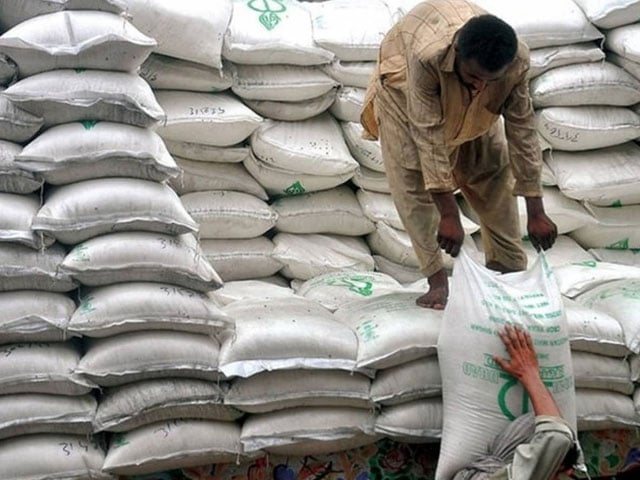Lahore: A conspiracy by some dormant flour mills in Punjab to pressurize the caretaker government to take government wheat quota has been revealed.
The conspiracy was to create artificial shortages and increase prices of private wheat and flour in the market. Demands for immediate supply of subsidized flour by the self-styled masses were to be used to increase pressure. It was planned to launch a systematic campaign by declaring private import wheat expensive and the possible minimum selling price of government wheat at Rs 4,600 as an inflation bomb for the public.
According to official sources, the caretaker government of Punjab has taken a principled decision to provide targeted cash subsidy to more than one crore deserving families through government welfare programs, while government flour will be provided to the rest of the people of the province with a reasonable reduction in price.
A meeting of the Wheat Committee of the Caretaker Cabinet is expected in the next few days to consider proposals for obtaining 500,000 tons of imported wheat for the Food Department from the Federation and preparing a liberal release policy. In addition, the Punjab Finance Department has given official approval to give 113 billion rupees to the food department to “zero” the subsidy given on the government wheat quota in the past, before the caretaker government gave 395 billion rupees to the food department. has given
Punjab has long had a controversial and non-transparent system of government wheat quota allocation to flour mills. Because of this, subsidized government flour worth billions of rupees is smuggled every year, while government wheat is sold on the black market to active flour mills.
This year, the food department is preparing to release government wheat to flour mills from next month under a liberal policy, in which the price of government wheat and flour can be set at Rs 50-100 less than the market price to curb smuggling and Theft can be prevented.
A big division has emerged in the flour mills of Punjab on the issue of government wheat release. Active flour mills are in favor of government wheat release under liberal policy while passive flour mills are demanding quota per roller body on population or uniform basis. It has been revealed that flour mills, who are demanding government quotas, are planning artificial shortages and inflation of flour to put pressure on the government.
Under the AJSH, an attempt was made to increase pressure on the government through spontaneous demands from the public for government subsidized flour supply so that the government would maintain the quota system. Last year, lakhs of tons of wheat flour was smuggled in Punjab due to the roller body quota and the price of about 1000 rupees lower than the market.
Government quota wheat was being sold in the black market and government flour was being smuggled. Manipulation of urine rates was also common. According to market sources, passive flour mills sell their quota wheat to active flour mills at high prices.
Liberal release will eliminate the black market and people will get quality flour at cheap prices. Presently, there are 1037 flour mills in Punjab, of which 1009 mills are registered with the Food Department. The wheat grinding capacity of the flour mills is 8 times more than the daily requirement of Punjab, new flour mills are established in the lure of government quota.
According to official sources, the Punjab Food Department is in favor of liberal release policy and a briefing is expected next week to the caretaker cabinet sub-committee. The import of private wheat has made it very easy for the food department of Punjab to implement a liberal policy. The public and private wheat reserve in Punjab is more than 7 million tons. The import will also continue until the new crop arrives.
(function(d, s, id){
var js, fjs = d.getElementsByTagName(s)[0];
if (d.getElementById(id)) {return;}
js = d.createElement(s); js.id = id;
js.src = “//connect.facebook.net/en_US/sdk.js#xfbml=1&version=v2.3&appId=770767426360150”;
fjs.parentNode.insertBefore(js, fjs);
}(document, ‘script’, ‘facebook-jssdk’));
(function(d, s, id) {
var js, fjs = d.getElementsByTagName(s)[0];
if (d.getElementById(id)) return;
js = d.createElement(s); js.id = id;
js.src = “//connect.facebook.net/en_GB/sdk.js#xfbml=1&version=v2.7”;
fjs.parentNode.insertBefore(js, fjs);
}(document, ‘script’, ‘facebook-jssdk’));



